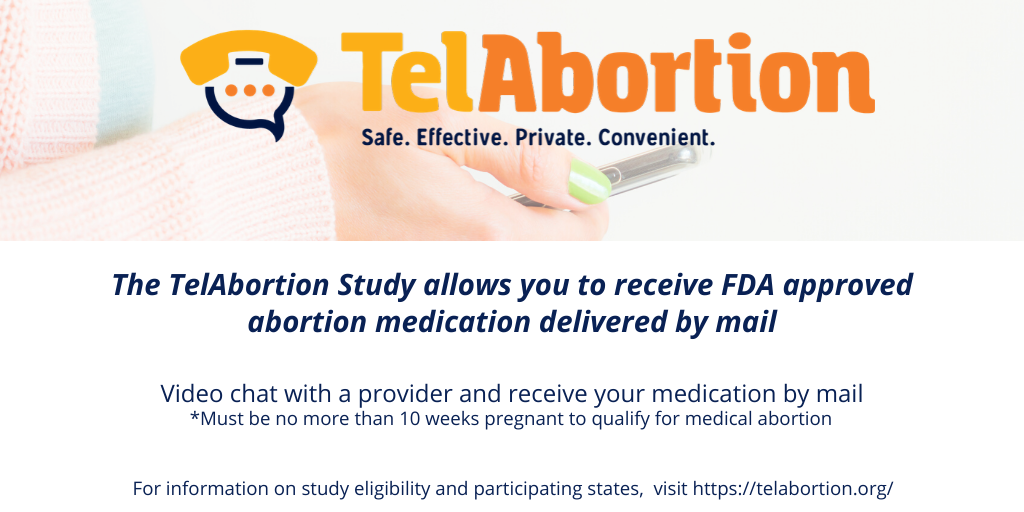Pregnant people can face many barriers to accessing abortion at clinics, including distance, scheduling difficulties and long wait times for appointments, the need to take time off from work and/or arrange for childcare, and harassment from clinic protesters.
In an effort to combat some of these barriers, Gynuity Health Projects, a non-profit reproductive health research organization, launched a project in 2016 called TelAbortion to provide medical abortion using telemedicine. Medical abortion is the use of pills (called mifepristone and misoprostol) to end a pregnancy. The Food and Drug Administration (FDA) approved mifepristone in 2000, and since then over 3.5 million people in the U.S. have had a medical abortion.

The TelAbortion project is a way for people to access medical abortion without going to an abortion clinic. An abortion provider conducts a video evaluation, reviews test results obtained at facilities in the patient’s community (if tests are needed), and sends the abortion pills by mail. The project is a research study conducted under a protocol filed with the U.S. Food and Drug Administration and approved by ethical review boards. The project is running in 13 states: CO, GA, HI, IA, IL, MD, ME, MN, MT, NM, NY, OR, and WA.
As of April 2020, the project has enrolled more than 800 patients. 95% of participants completed their abortion without surgery, and satisfaction has been high among both patients and providers.
How does TelAbortion work?
Patients must be 70 days (10 weeks) pregnant or less when they take the first pill, and located in one of the project states listed above.


For more information, visit www.telabortion.org or contact telabortion@gynuity.org.

